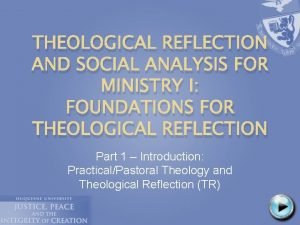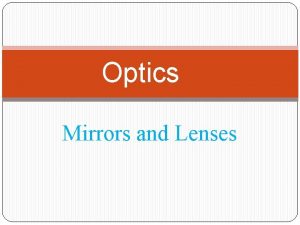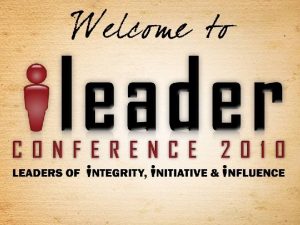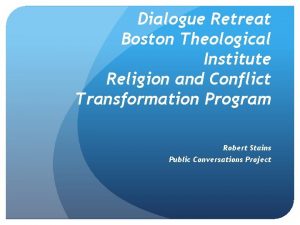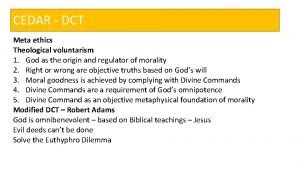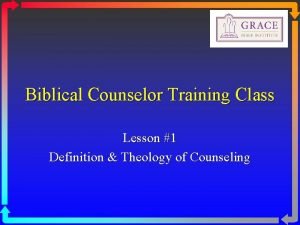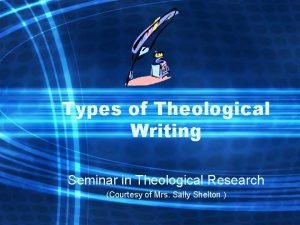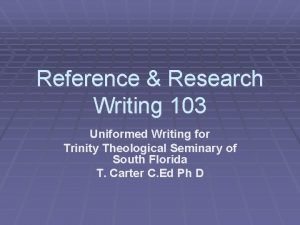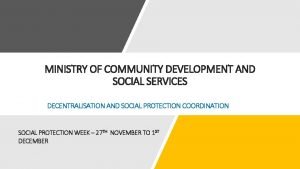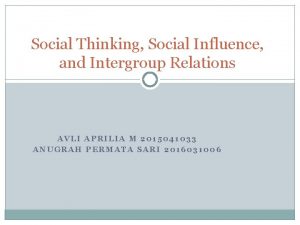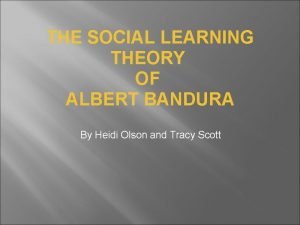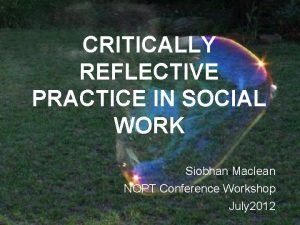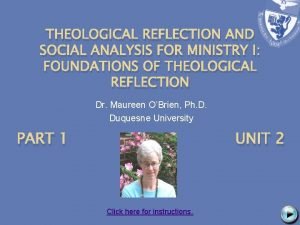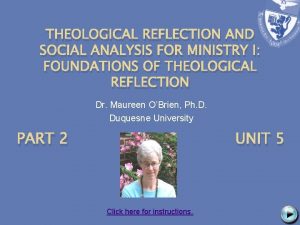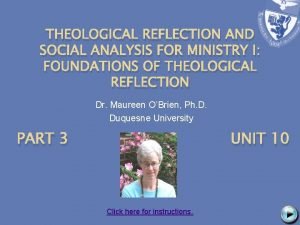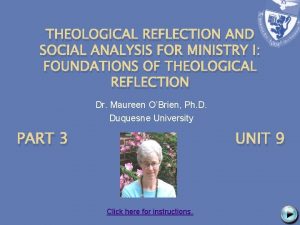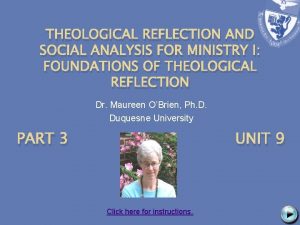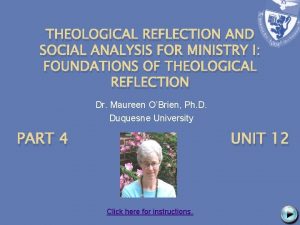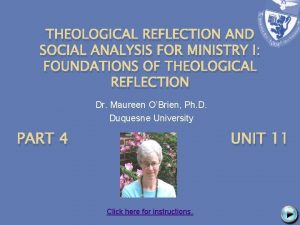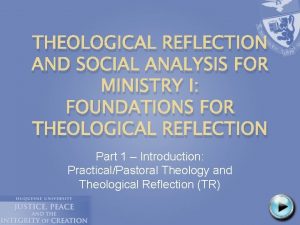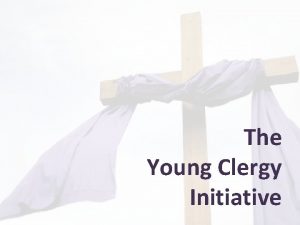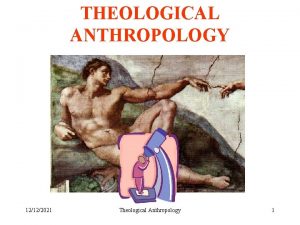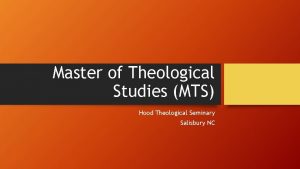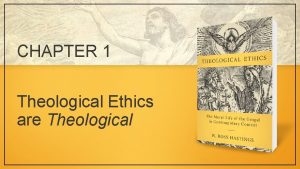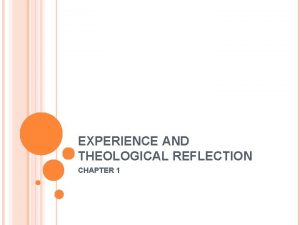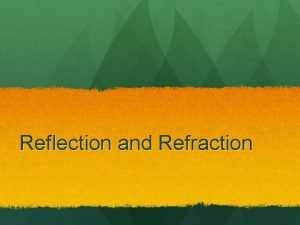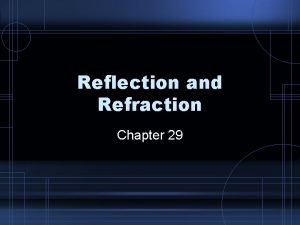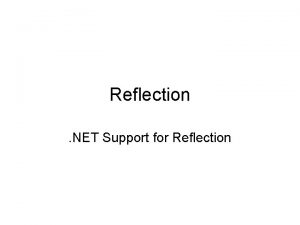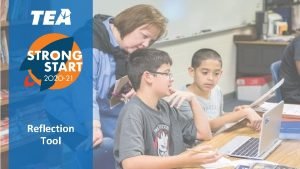THEOLOGICAL REFLECTION AND SOCIAL ANALYSIS FOR MINISTRY I























- Slides: 23

THEOLOGICAL REFLECTION AND SOCIAL ANALYSIS FOR MINISTRY I: FOUNDATIONS OF THEOLOGICAL REFLECTION Dr. Maureen O’Brien, Ph. D. Duquesne University PART 2 UNIT 4 Click here for instructions.

Instructions � Navigation through the course will occur by clicking on the following action buttons located in the lower right corner of each screen: The HOME button will be placed in the center of each slide and will bring you to the Table of Contents for further navigation. The NEXT and BACK buttons will move you through the course content. The EXIT button will be placed at the end of each Unit and will return you to the course menu.

Instructions � This course is meant to be self-paced, though there will be opportunities to interact with your local and global JPIC groups. � Course content and activities should be completed in the order that they are presented to maximize student success. � The Table of Contents will be your starting point for each Unit

Activity Icons � � Each type of course activity has a unique icon located in the upper right corner of the screen. In this course you will: Create doc Local discussion Reflect Read online Global discussion Watch video Quiz/test Online journal

Part 2: Important Considerations in TR Unit 4: Context and Culture

Table of Contents � The unit is divided in several components. Start with 4. 1 Description of Learning Journal OR click on the link below to navigate to the component where you left off. Revisit as needed. � 4. 1 Description of Learning Journal � 4. 2 Learning Outcomes � 4. 3 Preparatory Questions � 4. 4 Micro-lecture � 4. 5 Reading � 4. 6 Discussion Questions � 4. 7 Closing Exercise

Description of Learning Journal � Your Learning Journal is the place to record your responses to questions placed in each unit, as well as any notes that you take on the readings or in group discussions. These may be hand written or typed into a computer. If you type, please remember to save your work. Whenever possible, we encourage you to share your Learning Journal with other students in your own group and in other groups through the course’s online networking sites.

Learning Outcomes � By the end of this unit, students should have: � Considered the role of culture in ministry through examples from their own experiences and the experiences of others in different cultural contexts � Learned to view culture as dynamic and plural throughout the world, and as integral to theological reflection � Evaluated a contemporary African theologian’s perspective on inculturation and the church’s treatment of culture in relation to their own context

Preparatory Questions � Reflection and response to the following questions is an important way for you to begin thinking about the content of the upcoming unit. Please record your responses in your Learning Journal or hand write them in a notebook if you prefer. You are not expected to share this information with others unless you choose to do so.

Preparatory Question 1 � Religious groups in several countries may take this course, each one having its own distinctive features. Some groups that have already enrolled are listed below. As we prepare to discuss culture and context, learn a bit about one or two of these groups by browsing their websites: � Congregation of the Holy Spirit (Spiritans) in Zimbabwe: http: //www. spiritan. org/worldwide/zim. html and linked pages � Claretians at Claret Nivas, Barrackpore, India: http: //www. cmfchennai. com/photogalary_Houses_residences. htm# 13 and linked pages � Oblates of Mary Immaculate (OMI’s) in Cedara, South Africa: http: //www. omi. org. za/natal/formation. htm and linked pages

Preparatory Question 2 � Reflect on your home culture. What is one aspect of it that is especially dear to you? What is one aspect that disturbs you? Why? � Go to Learning Journal (MS Word)

Micro-Lecture View the Lecture (02: 19) Read the Text of the Lecture

Reading � Critical Concepts � Instructor’s Notes � Uzukwu, Elochukwu. A Listening Church. Maryknoll: Orbis, 1996. Print. [Chapter 1] � Go to Duquesne University’s E-Res

Discussion Questions � � � Reflect and respond to the following questions in your Learning Journal as you work through this unit. Then, please choose your response to one of the Discussion Questions that is especially important to you. Paste that response into a Wiki posting in order to promote and participate in a larger discussion with other students, locally and internationally. All of your Discussion Question responses should be brought into your Group Meetings.

Discussion Question 1 � Uzukwu’s opening pages provide a small social analysis of the crisis situation in Africa. Do you understand your own context to be one of crisis? Why or why not? � Go to Learning Journal (MS Word) Go to Learning Journal (Wiki) �

Discussion Question 2 � Read carefully Uzukwu’s thesis statement on p. 5: “It is thesis of this book that the retrieval and modernization of our African cultural matrix is the necessary route toward healing the political, economic, social and religious misery of Africa. ” Whether you minister in Africa or elsewhere, do you agree with this thesis in your own cultural context? Why or why not? � Go to Learning Journal (MS Word) Go to Learning Journal (Wiki) �

Discussion Question 3 � Read again the quotation from Libermann in the Instructor’s Notes. Do you agree with it? How does your own ancestry (for example, African, European, Asian, Latin American) affect your reaction? � Go to Learning Journal (MS Word) Go to Learning Journal (Wiki) �

Closing Exercise � After completing the reading and participating in the group meeting and Google Group discussion, take time to write in your Learning Journal in response to the following questions. You are not expected to share this information unless you choose to do so.

Closing Exercise � After the reading and discussion, take time to write in your Learning Journal: Has your understanding of the critical concepts changed through your learning during this unit? If so, how? 2. What one or two important questions or insights will you carry forward from this unit? 1. � Go to Learning Journal (MS Word)

Wiki � If you are ready to respond to the Discussion Question most important to you: � Click here to go to the JPIC 200 Wiki. Sign in so that you can post your entry. � Choose the appropriate Unit Number � Click reply to add your entry.

Culture � All the interrelated elements that are produced by people to create their way of life, including objects, beliefs, customs, symbols, values and worldviews.

Context � The particular setting in which a particular group of people has experiences. This includes time and place as well as members’ self-understanding of their identity and the factors shaping it (including history, social class, etc).

Social Analysis � Analysis of the political, economic, social and cultural factors uncovered in experiences and situations. Typically this incorporates some use of relevant social sciences and their findings (sociology, economics, politics, anthropology, cultural studies, etc).
 Theological reflection questions
Theological reflection questions The cardinal and theological virtues
The cardinal and theological virtues Diverging lens negative focal length
Diverging lens negative focal length Pontius pilate allusion
Pontius pilate allusion President of dallas theological seminary
President of dallas theological seminary Boston theological institute
Boston theological institute Theological voluntarism
Theological voluntarism Nouthetic definition
Nouthetic definition Trinity theological seminary of south florida
Trinity theological seminary of south florida Types of theological research methods
Types of theological research methods Trinity theological seminary of south florida
Trinity theological seminary of south florida Ministry of community development and social services
Ministry of community development and social services Social thinking social influence social relations
Social thinking social influence social relations Social thinking social influence social relations
Social thinking social influence social relations Social learning example
Social learning example Korthagen onion model of reflection social work
Korthagen onion model of reflection social work Fspos
Fspos Typiska drag för en novell
Typiska drag för en novell Tack för att ni lyssnade bild
Tack för att ni lyssnade bild Returpilarna
Returpilarna Varför kallas perioden 1918-1939 för mellankrigstiden
Varför kallas perioden 1918-1939 för mellankrigstiden En lathund för arbete med kontinuitetshantering
En lathund för arbete med kontinuitetshantering Personalliggare bygg undantag
Personalliggare bygg undantag Personlig tidbok
Personlig tidbok
